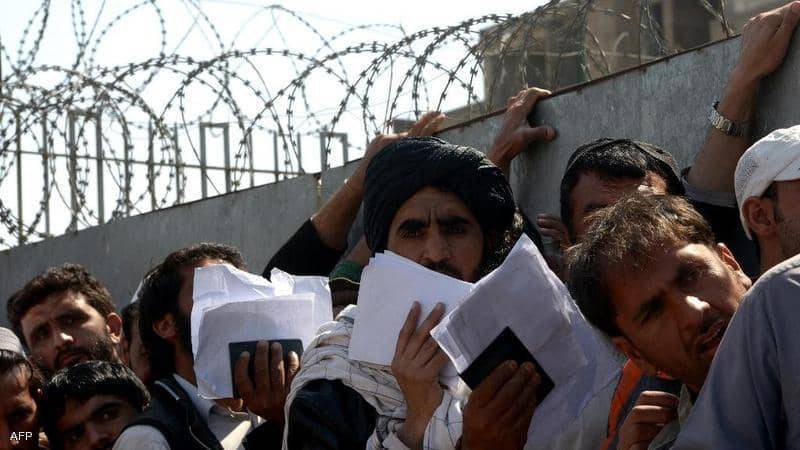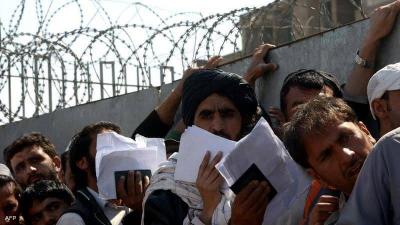Crowds seeking to flee Afghanistan have flocked to the country's borders, forming long lines outside banks in Kabul on Wednesday, as the administrative vacuum following the Taliban's takeover left foreign donors puzzled about how to address the looming humanitarian crisis. The focus of the militant movement has been on ensuring the operation of banks, hospitals, and government agencies after the completion of the U.S. military withdrawal on Monday, which ended a massive evacuation wave of Afghans who collaborated with Western countries during a 20-year war.
With Kabul Airport's operations halted, specific efforts to assist Afghans fearful of Taliban retribution have concentrated on arranging safe passages over land borders with Iran, Pakistan, and Central Asian countries. A Pakistani official at the main Torkham border crossing, located east of the Khyber Pass, said, "A large number of people are waiting for the gate to open on the Afghan side." Witnesses reported that thousands were also gathered at the Islam Qala crossing on the border with Iran. An Afghan in a group of eight who managed to cross into Iran said, "I felt that being among Iranian security forces brought a greater sense of comfort to Afghans as they entered Iran compared to what had happened in the past."
Over 123,000 Afghans have been evacuated from Kabul via a U.S.-led air bridge after the Taliban seized the capital in mid-August, but tens of thousands of at-risk Afghans remain inside the country. Germany alone estimates that there are between 10,000 and 40,000 Afghans working for developmental organizations in Afghanistan who are eligible for evacuation to Germany if they feel endangered.
French Foreign Minister Jean-Yves Le Drian stated that the Taliban are in talks with Qatar and Turkey regarding the management of the airport in the capital, but it may take days or weeks to finalize those negotiations. The United Nations Security Council urged the Taliban in a resolution on Monday to open a safe passage for those wishing to leave the country, but did not mention the establishment of a safe zone, a step supported by France and other countries.
The Taliban announced an amnesty for all Afghans who worked with foreign forces during the war that ousted their rule in 2001 for refusing to hand over Osama bin Laden, the al-Qaeda leader, after the September 11 attacks on the U.S. Taliban leaders called on Afghans to return to their country and help rebuild it, promising to respect human rights in what seems to be an attempt to portray a more moderate image compared to their previous regime known for its brutality in enforcing a strict interpretation of Islamic law.
The movement had made similar vows when it took power in 1996 but publicly executed a former president, deprived women of education and work, imposed strict dress codes on them, and took a punitive approach toward Kabul's residents. A woman reported witnessing Taliban fighters beating women with sticks outside a bank in the Afghan capital on Tuesday. The 22-year-old woman, who asked not to be named for her safety, said, "This is the first time I have seen something like this, and I was truly horrified."
No New Government Yet
The Taliban has not formed a new government or revealed how they intend to govern the country, unlike in 1996 when they established a ruling council within hours of capturing the capital. Pakistan's foreign minister, who has close ties with the Taliban, said on Tuesday that he expects Afghanistan to form a "consensus government" within days. In the absence of a government in Kabul, Britain and India have held separate talks with Taliban representatives in Doha amid fears that up to half a million Afghans may flee their country by the end of the year. Washington has stated that it would leverage its significant influence, including its ability to access global markets, to pressure the Taliban as it seeks to evacuate remaining Americans and allies from Afghanistan following the withdrawal of U.S. military forces.




